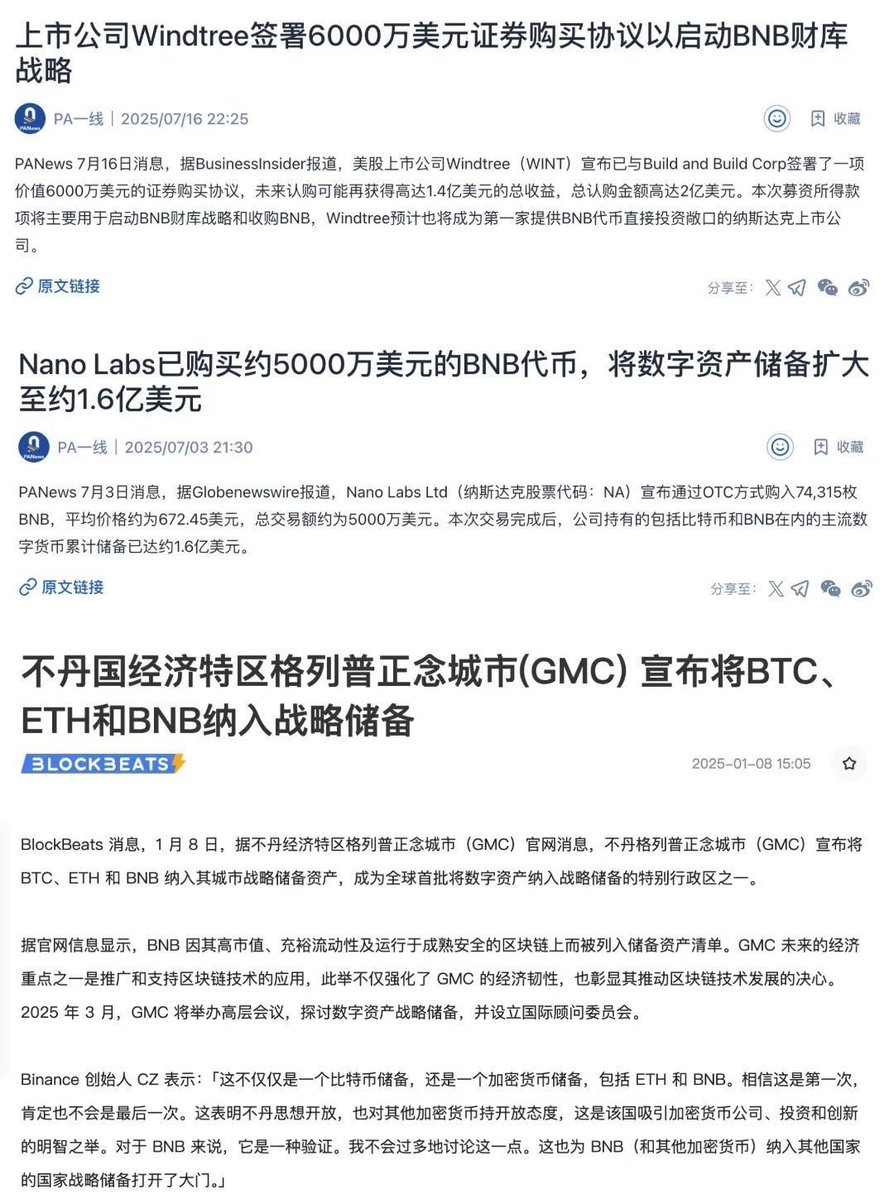⚡ As @cz_binance said, more BNB-based micro-strategies are on the way—
🧷 Windtree is using BNB for corporate treasury, with a maximum limit of 200 million
🧷 Nano Labs spent 50 million to acquire BNB and plans to increase it to 1 billion
🧷 Bhutan's economic special zone has included BNB in its national strategic reserves, alongside BTC/ETH
To be honest, for a long time, the role of $BNB in the crypto world has been quite ambiguous:
Unlike BTC, which has a scarcity narrative, and ETH, which has a technological halo, in the perception of many, it is just a coin issued by an exchange, offering discounted transaction fees and some platform rights.
However, whenever there is a need to do something—list a coin, trade, attract new projects, or conduct on-chain activities—BNB is always involved.
Especially in recent years, @binance has become like a financial nation, and BNB is the "structural tax authority" of this nation. Any asset that moves within this system generates liquidity tax for BNB.
Thus, BNB is gradually emerging as a type of asset that few have defined:
It does not rise based on narratives, nor is it driven by community speculation, and it has no significant TVL rankings to compete with; it relies on real income, on-chain liquidity, and ecological binding.
In simple terms, BNB is utilized by the market, not just talked about!
Now, as it begins to appear in corporate financial reports, national reserves, and strategic allocations, everyone should start to realize one thing—
BNB, like BTC and ETH, has become one of the standard configurations of mainstream crypto assets.
It represents true acceptance from a capital perspective, becoming irreplaceable within the entire industry structure, and increasingly core.
Just like you don't talk about gold and the dollar every day, but they are always there, supporting the most fundamental layer of the system!

免责声明:本文章仅代表作者个人观点,不代表本平台的立场和观点。本文章仅供信息分享,不构成对任何人的任何投资建议。用户与作者之间的任何争议,与本平台无关。如网页中刊载的文章或图片涉及侵权,请提供相关的权利证明和身份证明发送邮件到support@aicoin.com,本平台相关工作人员将会进行核查。




